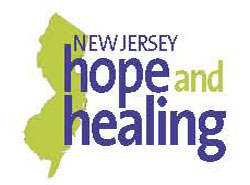You are here


nj.gov
State of New Jersey - Department of Human Services
Division of Mental Health Services
Super storm known as Sandy has devastated many New Jersey communities and wreaked havoc in people’s lives all along the East Coast. More than 50 million Americans are coping with the aftermath of the storm. The damage and destruction from coastal surges, power outages, and high winds has resulted in disruptions to school and work schedules, property destruction, and serious financial consequences.
No one who lives through a disaster is untouched by the experience. Like other disasters, severe storms and flooding can result in emotional distress, as well as property damage. Disasters can threaten our sense of control and safety, and can affect many aspects of our lives. The emotional trauma caused by the storm and anxiety about what will happen next can complicate and impede recovery. While protecting people and restoring safety, power, and property, is a priority in the wake of natural disasters, emotional coping also matters.
The New Jersey Department of Human Services’ Division of Mental Health and Addiction Services - Disaster and Terrorism Branch, is coordinating statewide efforts to help individuals and communities manage the emotional impact of the storm. Disaster Mental Health Teams are currently providing support in many shelters around the state and are mobilizing to assist and FEMA Disaster Recovery Centers over the coming days, weeks and months as needed. In addition to providing face-to-face disaster crisis counseling, the Disaster and Terrorism Branch provides informational materials about coping, and partners with the Mental Health Association in New Jersey to offer assistance through a toll free Disaster Mental Health Helpline: (877) 294-HELP (4357). A TTY line is available for the deaf and hearing impaired at (877) 294-4356.
Many Ways to React… Many Ways to Cope
It is important to remember that there is no one correct way to react emotionally to storms and floods. Not everyone reacts the same way, and in fact, you may react in a variety of different ways even in the course of the same day. Each person gets through the emotional challenges of a disaster in their own time and on their own terms.
To help you manage emotions associated with the storm and flood, you should use the coping mechanisms that are familiar and comfortable for you. Other ideas for coping are suggested below and can be discussed with counselors and other caregivers.
If you or someone that you know is having an acute emotional reaction that does not subside over the period of a few days, it may be best to seek the assistance of a medical or mental health professional.
Predicting and Preparing for Emotional Reactions
Not everyone will have an immediate or obvious emotional reaction to a disaster; those who do will react in their own unique way. Some of the more typical emotional reactions may include:
| • | Recurring dreams or nightmares about the event; |
| • | Trouble concentrating or remembering things; |
| • | Feeling numb, withdrawn or disconnected; |
| • | Disturbances in eating and sleeping patterns; |
| • | Having bursts of anger or intense irritability; |
| • | Persistent physical symptoms (i.e., headaches, digestive problems, muscle tension, etc.); |
| • | Being overprotective of your family’s safety; |
| • | Avoiding reminders of the violent events or evacuation; |
| • | Being tearful or crying for no apparent reason |
For people returning home from a disaster-affected area, it is not uncommon to experience difficulty in “decompressing” and reintegrating back into the home and workplace.
What Helps…
Here are some useful suggestions for coping with the stress stemming from disasters and or traumatic events:
| • | Limit your exposure to graphic news stories; |
| • |
Get accurate, timely information about the status of the situation from credible sources; |
| • | Try to return to your normal daily routine; |
| • | Exercise, eat well and rest; |
| • | Stay busy- physically and mentally; |
| • | Communicate with friends, family and supporters; |
| • | Use spirituality and your personal beliefs; |
What Doesn’t Help...
There are several behaviors that can slow or complicate the emotional recovery process. These include:
| • | Using drugs or alcohol to cope; |
| • | Withdrawing from friends or family; |
| • | Blaming others; |
| • | Overeating or failing to eat; |
| • | Withdrawing from pleasant activities; |
| • | Working too much; |
| • | Anger or violence; |
Staying Connected
The best source of assistance in dealing with the emotional consequences of a disaster is often found in each other. If you are anxious about your experience, talk to someone you love or trust. This may be a family member, friend, clergy member or teacher. Just don’t keep your thoughts and feelings to yourself.
If you notice that a loved one, friend or co-worker’s behavior has substantially changed, reach out and ask them how they are doing. Make some time to talk, when it is convenient for both of you, and follow up later on to see how they are doing. Watching out for each other demonstrates that you care and it can be comforting to both of you.
For more information about the emotional impact of disasters and strategies and techniques for coping, please click on the link below to download the brochure, “Coping with the Emotional Consequences of Storms.”
Click here for English Click here for Spanish



Recent Comments